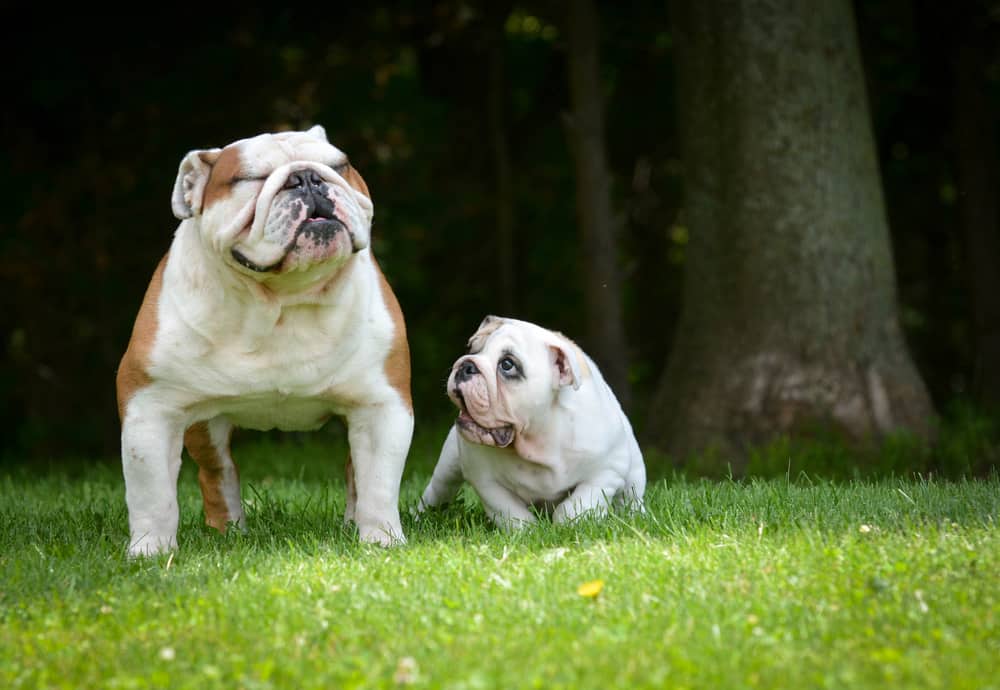All products and services on Project PAWS are independently selected by our editors, contributors, and veterinary experts. This post contains affiliate links. As an Amazon Associate I earn from qualifying purchases.To learn more, view my disclosure policy.
Your Adult Dog: What Being an Adult Means: Since there is no legal voting age for dogs, it can sometimes be hard to determine when they officially become an adult. And does it even matter? The truth is your dog’s adult years are worthy of noting even though they are undergoing fewer changes than puppyhood and the senior years. Adulthood happens to be the longest life-stage, maybe the least demanding, but still requires some special considerations in order to ensure that your dog lives the longest, best life possible.
When Do Dogs Become Adults?
As we said before, your dog doesn’t get any special privileges that signify adulthood, rather becoming an adult is defined by reaching physical maturity. That just means they’ve finished growing. Physical maturity is different than sexual maturity, when a dog is able to reproduce, and often occurs much later. There is no set-in-stone age when your dog magically turns into an adult. Instead, reaching adulthood depends on the breed and size of your dog. As a general rule, the smaller the dog, the sooner they become an adult. This makes sense as it definitely takes a Great Dane longer to reach their full stature than it does a Yorkie. For a rough estimate when this will happen, smaller breeds become adults at nine to 12 months of age and larger breeds will take until closer to 15 months.
Being an adult isn’t just a physical attribute, it’s also a state of mind. Adult dogs can definitely still play, but they may not be the out of control, no self-awareness ball of fluff that they once were. Adult dogs also tend to listen and respond better and settle down more quickly. There will also be a difference in the way that other dogs regard an adult versus a puppy. Puppies present with playfulness and activity, while an adult dog is more likely to show interest without the explosion of exuberance.
Does it Matter That Your Dog is an Adult?
Reaching maturity in dogs doesn’t come with the celebrations that human put on it, but there are some definite differences between having a puppy and having an adult dog.
- Food change: Adult dogs should be eating a diet that is nutritionally different than that of a growing puppy. Puppy food is very high in the fat and calorie department and can quickly turn your slim and trim new adult to a chubby, grumpy grown-up.
- Exercise: Most puppies take care of exercise on their own. It’s no trouble getting them to chase a ball or wrestle the stuffed fox toy until their tired. But adult dogs can be more of a challenge. Losing some of that playfulness may mean that they need more input from you in order to stay strong and healthy.
- Health care: For most adult dogs, now is the time to coast through veterinary visits. They’re done with the series of puppy vaccinations, have a sterilization procedure marked of their list, and haven’t yet faced the ailments that can plague the senior years. But that doesn’t mean it’s a time to be footloose and fancy-free with veterinary care. Adult dogs still need routine vaccinations, screenings, dental care, and weight management so that they reach those senior years in the best shape possible.
How Old in Dog Years
You’ve probably heard the generalization that one dog year equals seven human years, but that’s not exactly true. It varies depending on the size of your dog and isn’t evenly distributed. The first year is more like 15 years in human time and then it slows down after that. Some large dogs reach middle age by five, while smaller dogs won’t hit that mark until eight or nine years.
Adulthood in dogs is a time to cherish with your best friend. They’ve hopefully left some of those destructive puppy habits behind and haven’t yet had any worrying senior moments. Be sure that you take proper care of your adult dog but first understanding when they reach adulthood and what special requirements that entails.
